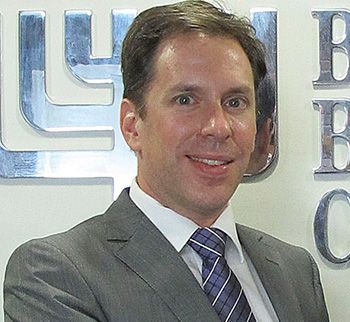B’nai Brith is an iconic brand, but people in the Jewish community may not fully understand the scope of what the organization does, says Michael Mostyn, B’nai Brith Canada’s new CEO.
“Some people know us from our lodges, others from our seniors’ lunch program, or because they read the [Jewish] Tribune or play in our sports league. Now we need everyone to know what B’nai Brith truly stands for,” said Mostyn.
At age 40, he replaced Frank Dimant earlier this month. Dimant retired after 36 years leading the organization.
The Toronto-based Mostyn, who served as B’nai Brith’s national director of public affairs from 2006 to 2010 told The CJN via e-mail that he hopes to usher B’nai Brith “into a period of rejuvenation and renewal” by broadening the community’s understanding of the organization’s activities and values, attracting younger leaders and engaging in fundraising that will “ensure [its] long-term health.”
“I want the entire community, whether they’re members of B’nai Brith or not, to be proud of the way we carry ourselves forward and complete the tasks placed before us,” he explained, adding, “B’nai Brith is a secular Jewish organization, but there is room within our tent for all streams of the community, whether Reform, Conservative, Orthodox, young and old.”
For the past 140 years, B’nai Brith’s mandate has been to serve the community through the provision of services such as summer camps and youth and women’s groups, and by representing Jewish Canadian interests to government, NGOs and the wider public.
Mostyn said it has evolved, and will continue to evolve, to meet the community’s changing needs.
As examples, he pointed to the League for Human Rights of B’nai Brith Canada’s compilation of the Annual Audit of Anti-Semitic Incidents, the ramping up of Israel advocacy, the initiation of sports leagues, the subsidizing of housing for seniors and developing the facility One Kenton, which is dedicated to helping people with Alzheimer’s.
A former senior partner in his family’s law firm in Toronto and a former senior officer at two different high-tech firms, as well as an unsuccessful Tory candidate in York Centre in the 2004 and 2006 federal elections and the 2011 provincial vote, Mostyn said he sees his role in the community as providing a strong voice “for those people who have none,” as well as speaking out against anti-Semitism and developing programming and services for those in need.
Last year, B’nai Brith signed an agreement with UJA Federation of Greater Toronto to strengthen ties after tensions flared between the two groups.
Asked about his vision for how the two entities can work together in future, Mostyn said he looks forward to working with Jewish federations across Canada and hopes to ensure that whoever in the community requires a service gets it in the best possible way.
“I have been overwhelmed by the positive response to my appointment… from many Jewish and non-Jewish groups that have already indicated to me that they’re interested in working together and in discussing ways to help people,” he said.
Regarding whether he takes issue with any of Dimant’s approaches, such as the outgoing CEO’s recent – and controversial – nomination of Canadian Prime Minister Stephen Harper for a Nobel Peace Prize, Mostyn responded: “The rules are very clear that an NGO such as B’nai Brith has no standing to nominate anybody for the Nobel Peace Prize. Frank Dimant nominated the prime minister outside of his official capacity with our organization.”
He added: “Frank and I are two different personalities. Here’s the way I operate: I have always worked collaboratively with others and I expect to do so in the future. I have already begun the process of reaching out to other organizations.”
